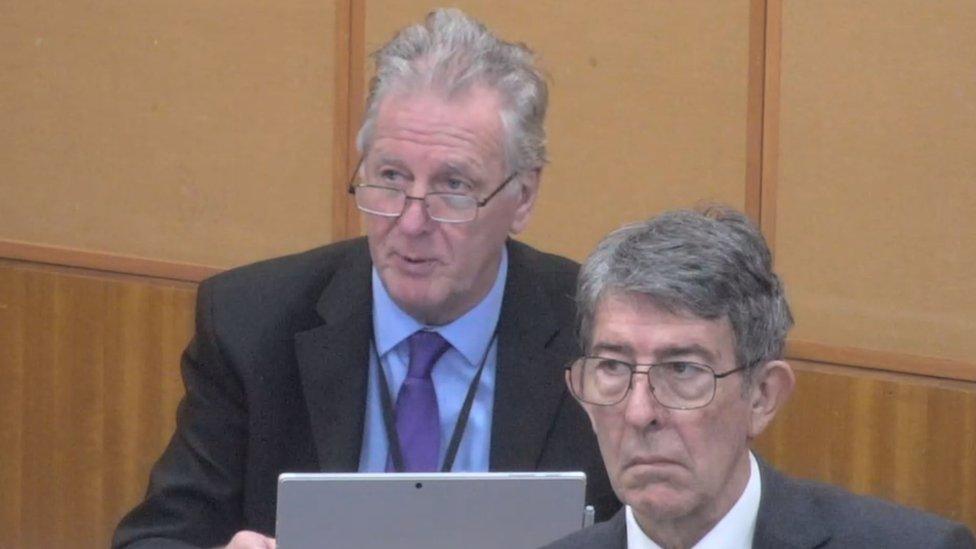'Orchestrated campaign' over special needs remarks
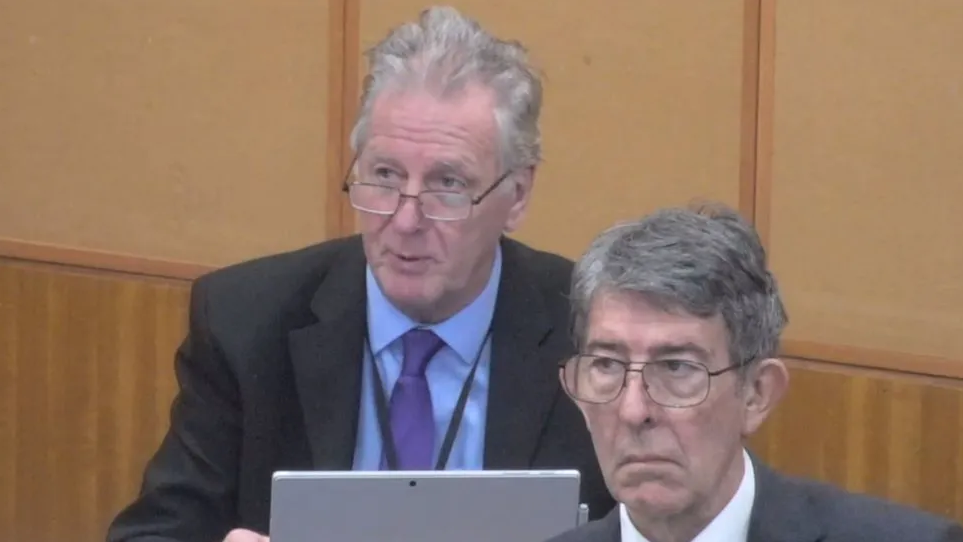
Councillor Brian Hammersley (left) said he would be more thoughtful about his words in future and Jeff Morgan said he regretted his choice of words
- Published
Councillors investigated over their comments about children with special educational needs and disabilities (SEND) felt a large public outcry was an "orchestrated campaign".
Comments from Jeff Morgan, Brian Hammersley and Clare Golby during a Warwickshire County Council meeting led to a petition, protest and hundreds of complaints.
The council said last month an independent investigation cleared all three councillors of breaching its code of conduct.
The investigation reports said Mr Morgan and Ms Golby believed the complaints escalated after campaigns by national groups.
Meanwhile, Mr Hammersley told the inspector the volume of complaints soared after the publication of social media videos which misrepresented his words.
The BBC has approached the councillors for their response to the full findings in the report.
The investigation, carried out by Anthony Collins Solicitors, followed a debate at a scrutiny committee meeting on 25 January over a £17.5m overspend in the high needs block.
The investigation report has now been released following a freedom of information request, external.
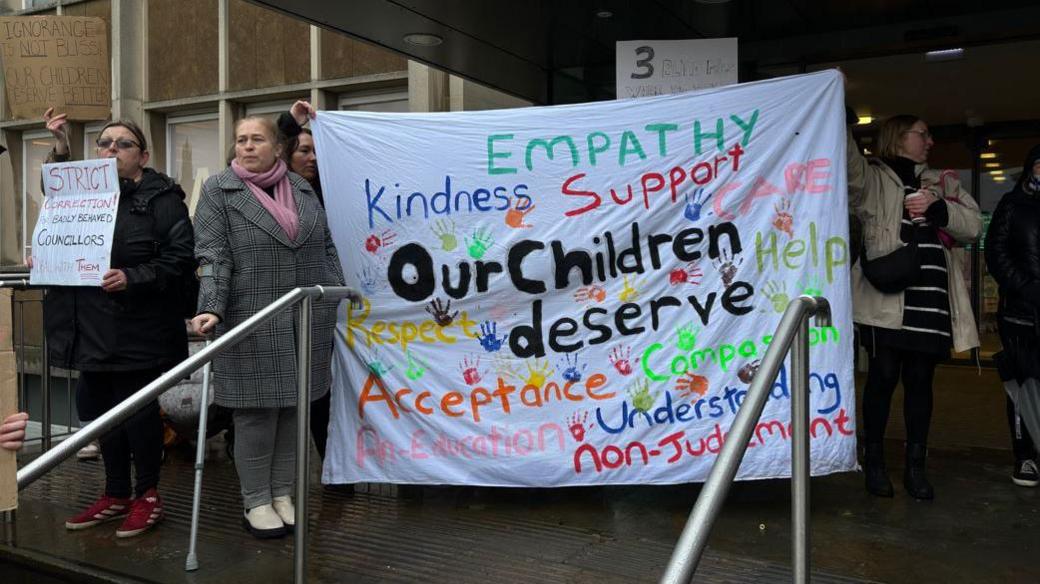
Dozens protested outside Warwickshire County Council's headquarters in February
During the meeting Mr Hammersley questioned whether the rapid increase in schoolchildren with education, health and care plans (EHCPs) was down to "something in the water".
Mr Morgan suggested rising demand might not necessarily mean there was "genuine need".
"I don't know how you do that apart from being tougher, asking more penetrating questions, not automatically accepting the plea of a mother saying that little Willy has ADHD (attention deficit hyperactivity disorder) when in actual fact little Willy is just really badly behaved and needs some form of strict correction," he said.
Ms Golby queried whether the increase in need might be due to rising social media use and families swapping tips on how to get their children diagnosed.
A summary of the investigator's findings, external published last month concluded Ms Golby's words, when taken in context, were not disrespectful.
While Mr Morgan and Mr Hammersley were found to have made disrespectful remarks that caused reputational damage to themselves and the council, they were allowed under freedom of speech protections.
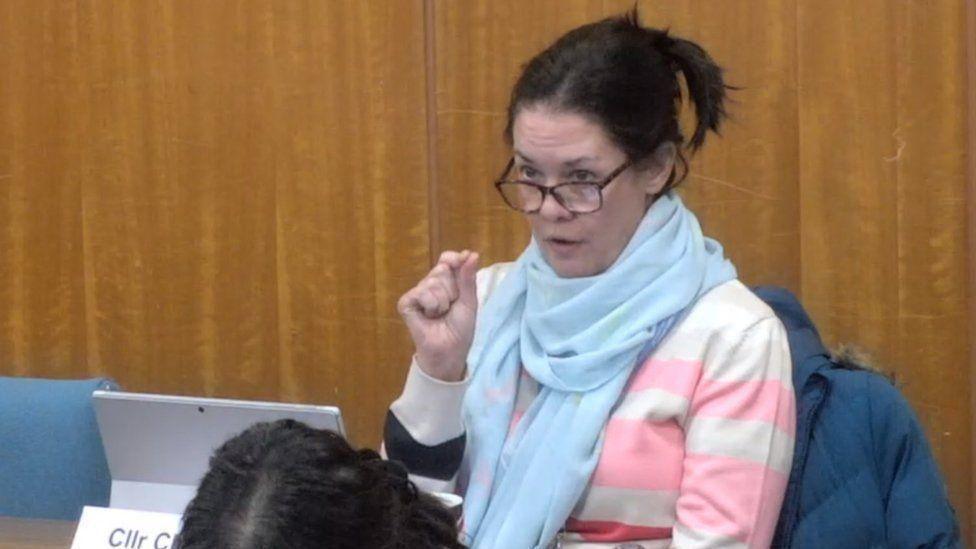
Clare Golby said she spent many years working to support children and families in the SEND community
All three councillors apologised in February for the offence caused by their comments.
But the full report revealed Ms Golby found it "very difficult" because "she had not in her opinion been objectively offensive", though she recognised the offence caused.
"Councillor Golby says that this [an apology] is what the council wanted her to do but she found it was very difficult because she didn’t know what she was apologising for," the investigator wrote.
"She feels grossly misrepresented as part of what she considers is an orchestrated campaign," the investigator added, writing that the councillor believed it was linked to the local elections in May and included being reported to police for a hate crime.
"She says she has been portrayed as the lead protagonist but that what she said has been taken out of all context, manipulated and morphed on various social media platforms and in the wider media into something so far from their actual meaning."
The investigator heard Mr Morgan also felt local complaints were magnified in an "orchestrated campaign" by national groups.
He explained he had not "got his thoughts together" when called on to speak in the meeting, and was trying to draw "a difference between demand and need".
The inspector wrote offence caused by him chuckling at his own remark of, "I don't want to be too Daily Mail on this... but I am yeah," was "not courteous".
"It suggested that SEND issues were something to have a joke about, something trivial and not something to be concerned about," they said.
They also found: "The strict correction comment wasn't advocating punishment but was a reference to his scepticism about ADHD," and added comments made were based on a "low level of understanding".
In his apology, Mr Morgan said he regretted his choice of words used to make a point about "demand and need" and said it was never his intention to offend.
'Vile' messages
While Mr Hammersley admitted his language was clumsy and apologised unreservedly for the offence caused, the report revealed he believed his words were misconstrued.
"With hindsight he says he would have been more careful with the words that he used, but that he was speaking 'on the hoof'," it said.
"He feels that he has been misrepresented as a large proportion of the complainants are quoting words that he did not say."
Mr Hammersley told the investigator "the balloon went off" when TikTok videos were released, particularly one which mixed quotes and photographs from the meeting with historic scenes of asylums and institutions.
Complaints over his remark about going back "to fix the problem at source" did not "relate to the words used and have been fuelled probably by the social media and a particular TikTok video," the investigator wrote.
He divulged he had received numerous emails of complaints since the TikTok video went live, some of which were "vile".
Mr Morgan and Ms Golby also told the investigator they had received abusive emails following the publication of social media videos.
Responding to the reports, SEND Crisis Warwickshire said conflating the videos with the positive work of other groups was "unfortunate and misguided".
It said at the time of the original comments made by councillors it called for a more reasonable and informed dialogue.
'Lacked kindness'
Due to the volume of complaints, only a representative sample of 26 was looked at as part of the council investigation, though all were read.
Complainants from across the country told the investigator they had been angered or upset by the debate, which lacked "kindness, care or compassion".
While some said they had watched the meeting after being alerted to it on social media, others based their response on the social media content only.
"The overall consensus of all complainants I met with was that the questions being asked and the comments made were disrespectful and discriminatory," the investigator wrote.
"The complainants were hurt by what they heard or read either from social media or by listening to the recording of the meeting."
SEND Crisis Warwickshire said it had been in regular contact with the leader of the council and CEO, among others, which had led to a number of positive results, including unanimous full council approval for SEND awareness training for councillors and a continuing programme of training to support them.
Follow BBC Coventry & Warwickshire on Facebook, external, X, external and Instagram, external. Send your story ideas to: newsonline.westmidlands@bbc.co.uk, external
- Published13 June 2024
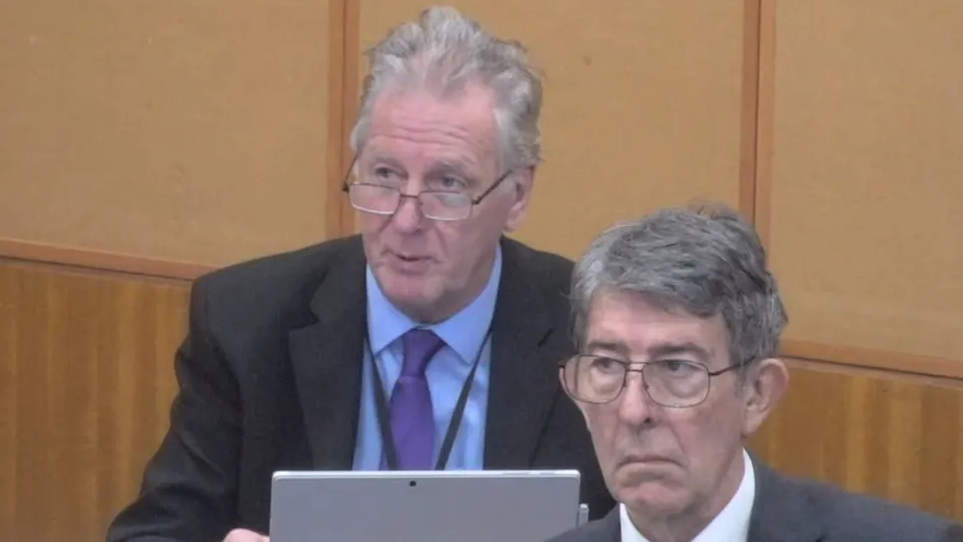
- Published14 June 2024
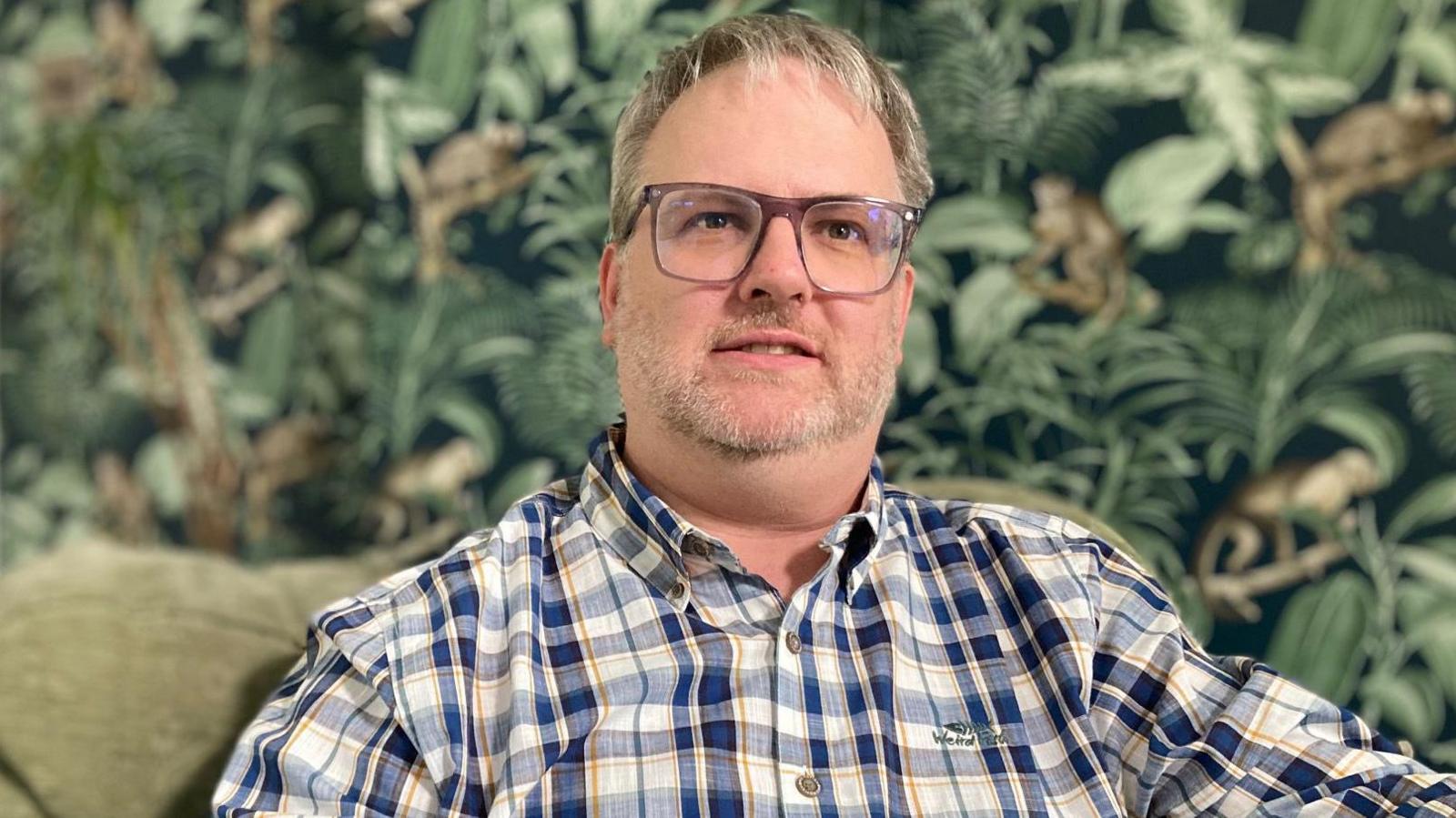
- Published13 July 2024
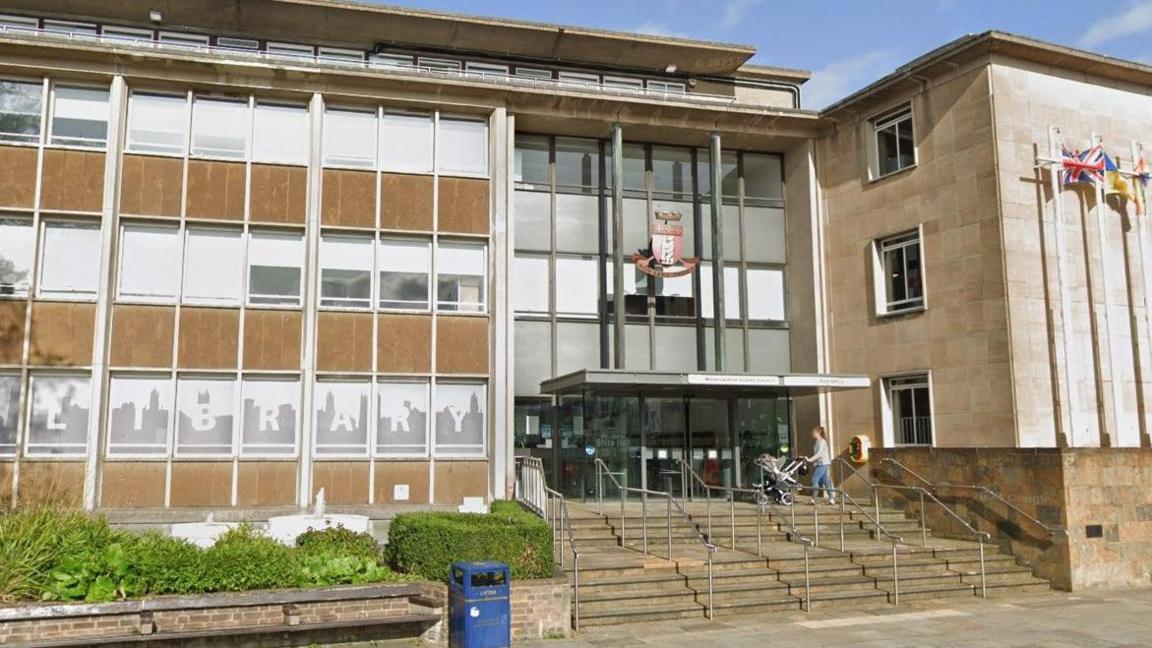
- Published19 March 2024
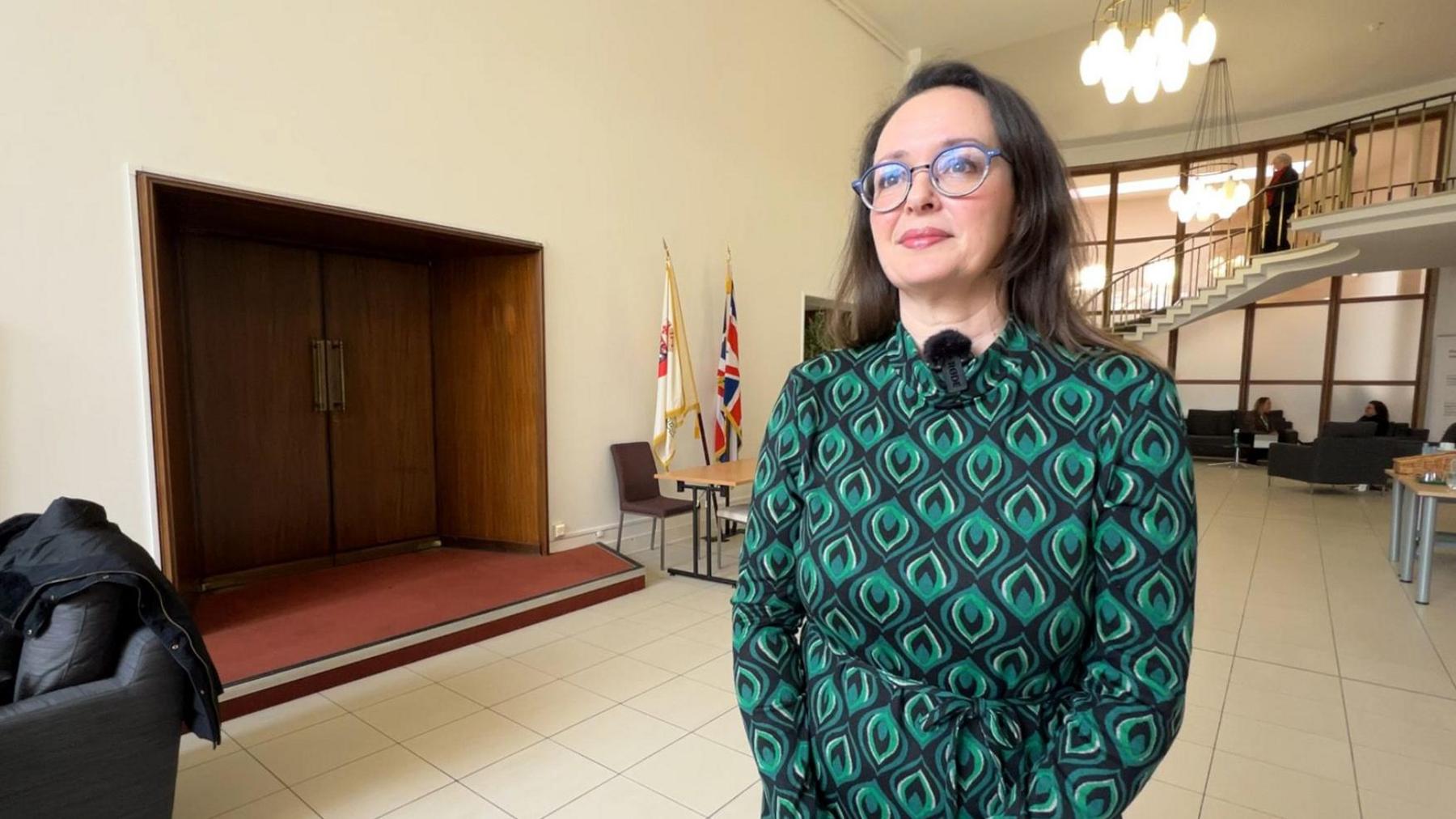
- Published6 February 2024
